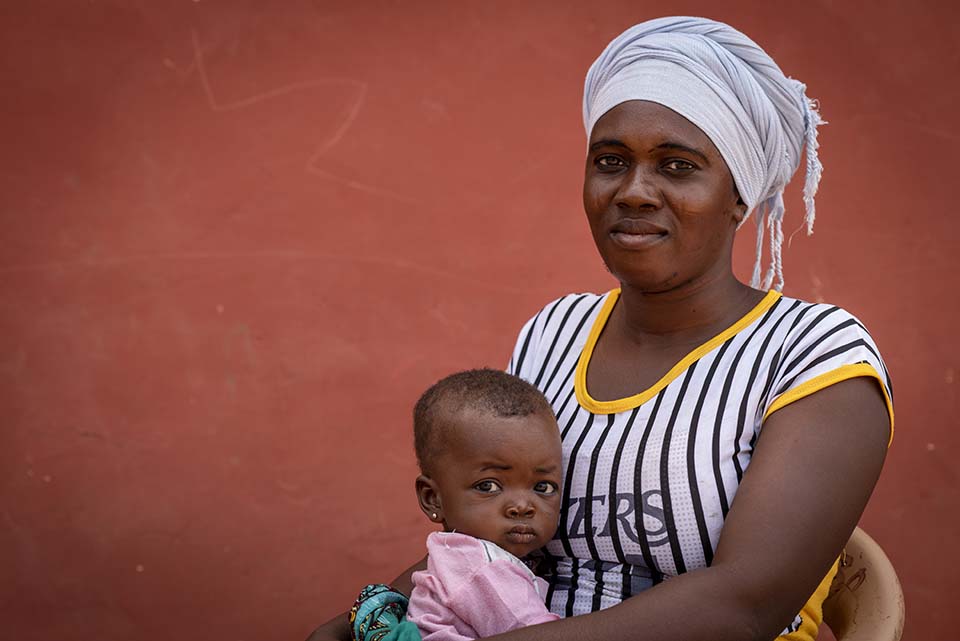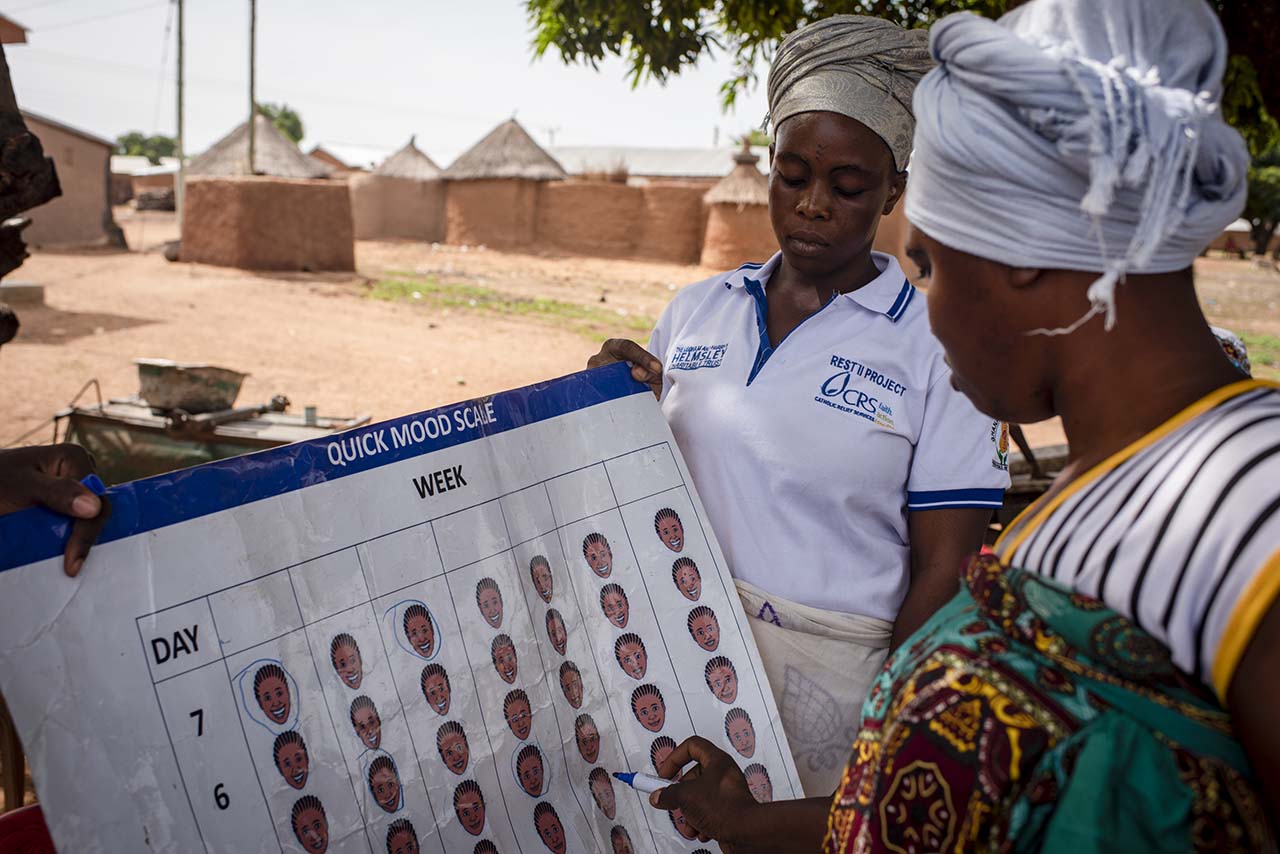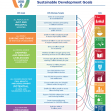

Ghana: Treating Depression in New Mothers
Even before Mumuni Boya became pregnant, she knew she wanted to be a mother. Her dream was a home full of children, running around and playing with each other. Mumuni would be forever happy and fulfilled, she thought.
But her pregnancy sparked a struggle that gradually became worse through the end of her pregnancy and beyond. Never did she imagine it would threaten her marriage and her life.
“My sadness was with me, but I couldn’t communicate it,” explains Mumuni. In retrospect, she realizes it was depression—a condition that happens in every culture around the world.

Mumuni Boya participates in community meetings with other new mothers and pregnant women to help decrease the risk of depression and manage daily stress.
Photo by Michael Stulman/CRS
In the United States, for example, 17.3 million adults have experienced a major depressive episode in the past year. However, developing countries have fewer mental health services and lack resources and knowledge to provide support. In rural Ghana, women like Mumuni have limited options. For many, depression strikes as an invisible illness that is difficult to recognize, hard to endure and uncomfortable to talk about.
Together with The Leona M. and Harry B. Helmsley Charitable Trust, Catholic Relief Services wants to change the way depression is viewed, discussed and treated in Ghana. We are piloting a new community-based project in which trained volunteers support pregnant women and mothers with children under age 2 to become more resilient, decrease risk for future depression, and manage daily stressors effectively. Mothers are also exposed to selected early childhood development messages on parenting young children and promoting early stimulation behaviors and bonding to support child development.
Confronting depression
After her baby was born, Mumuni’s friends and family shared congratulations and rejoiced. But Mumuni experienced a psychological, emotional, and physical transformation in that moment that is often ignored in all this commotion.
As the depression continued to take its toll on Mumuni—and her family—a friend invited her to attend bimonthly meetings organized by the community, with support from CRS. Pregnant women and new mothers gather under a tree and discuss their problems and share their success and happiness. It’s a 14-session course held over a 7-month period.
Seeking solutions
The facilitator, Rakia Baba, holds up a chart with a range of facial expressions: angry, excited, embarrassed, sad, sick, worried, happy. Rakia asks for volunteers to share their mood by pointing to one of the expressions. This helps people understand and track how people feel.
“If someone is depressed, they might not have strength in their body. It’s difficult to concentrate. This used to be common, but we couldn’t recognize it. Now we can identify it and we have activities to improve our mood,” explains Rakia.
“If you’re pregnant, and your mood is down, do activities to boost your mood,” Rakia tells the group of women—24 in total. “The impact of depression is isolation from family and friends. Someone who is depressed might get angry over minor issues.”

Presented during community meetings, this mood chart promotes healthy emotional regulation by helping people to identify and track how they feel and why.
Photo by Michael Stulman/CRS
Over time, the meetings began to help Mumuni and the other women in the group.
“I could forget about my sadness and I started new activities. I could seek out help from other people,” says Mumuni. “If I hadn’t learned from the meetings, I might have left my children and husband.”
Depression’s economic impact
Appropriate mental health services are critical for improving the wellbeing of mothers, but it also helps child development. For example, mothers experiencing chronic depression increase their child’s susceptibility to a range of social and emotional problems.
“If we can manage depression, our kids will be enrolled in school and their lives will be better,” says Mumuni.
And on a large scale, depression also can have an economic impact: Every $1 invested in scaling up treatment for depression and anxiety leads to a return of $4 in better health and the ability to work, according to the World Health Organization.
“Feeling better about yourself is the first step toward development,” says Rakia. “If people aren’t healthy, there can’t be development. These meetings help us have a sound mind.”
“We only have each other,” she says. “The meetings help us be closer together.”




